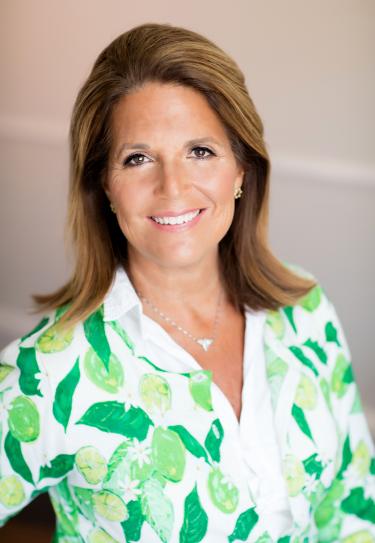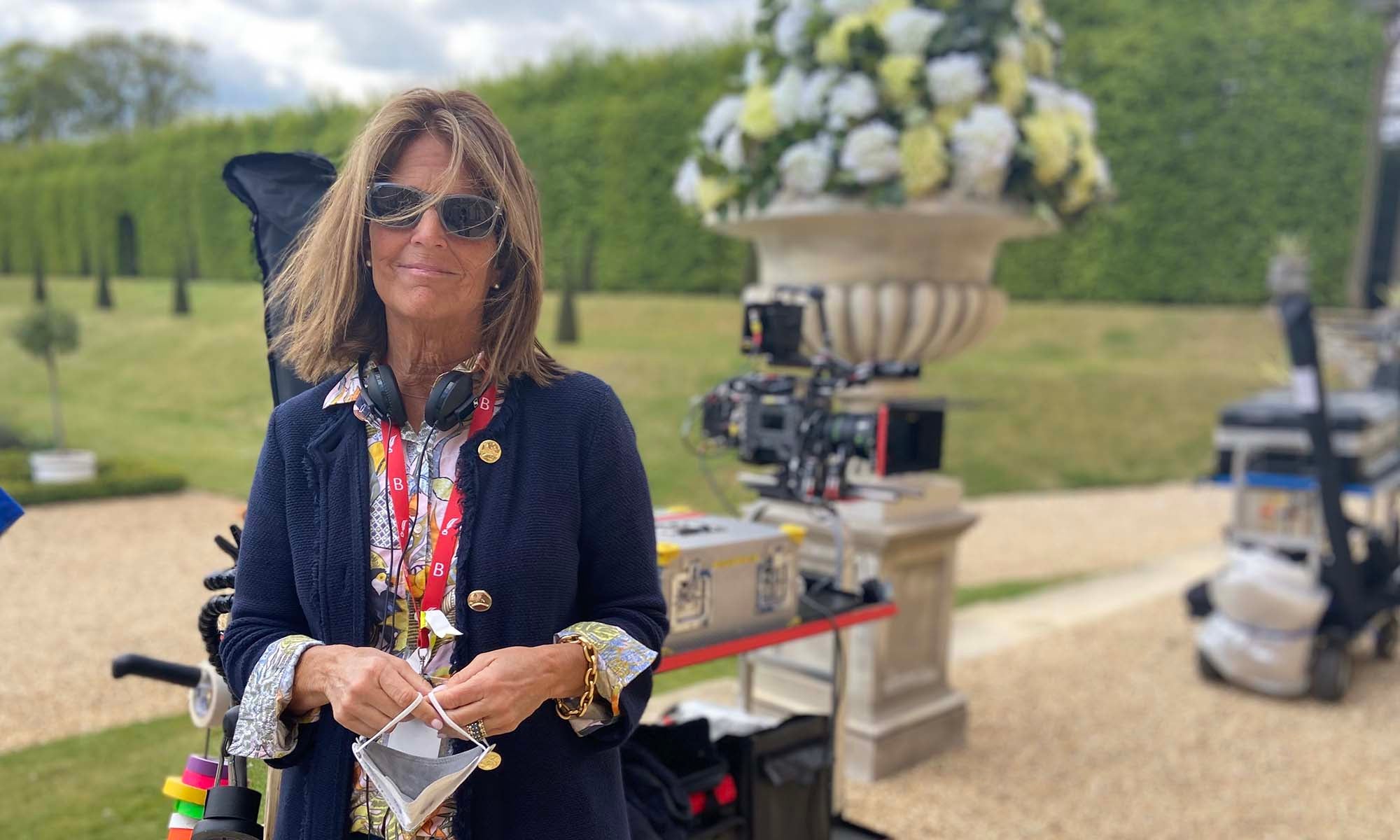Over a 30-year career, Sara Fischer (Advert, Engl’78) has become one of the top female TV production executives in the country. She got her start in the entertainment industry as the “gal Friday'' at a sports agency before gaining valuable experience behind the camera working in live sports and commercials. One of the first women hired in the Sports Division at CBS, Fischer’s career has included time as an assistant director, unit production manager, producer and eventually executive positions at Showtime and ABC Studios.
In 2016, Fischer joined Shondaland as executive vice president and head of production. The Shonda Rhimes-led production company creates stories focused on people who have been historically overlooked. The company’s first venture, Grey’s Anatomy, is the longest-running scripted primetime series carried by ABC, and Bridgerton is one of the most watched English-language shows in Netflix history. With each successive role, Fischer has used her platform to empower others in front of and behind the camera.
 What was the best part of your CU Boulder experience?
What was the best part of your CU Boulder experience?
The friendships that came out of it. CU is a beautiful place. Two out of my three children are CU graduates also. They loved it and always heard about it from me.
How was your Hollywood journey unique?
I’ve never met anyone who started in live TV, and then moved to scripted TV. In live television, if you make a mistake, you can’t take it back. In scripted, there’s always a take two, take 10, take 20. So, once you work live, you become calm for everything else.
As head of production, what does your daily work look like?
From production issues to personality issues, every day is completely different when you’re responsible for hundreds of people. You have people under you producing individual shows, but you are still the bottom line and answer all of those people’s questions.
The film business is one of relationships, and you have to be kind to everyone. My best attribute is being a connector, remembering who does what, and staying friendly with people. It comes back in so many ways and helps professionally and personally.
What makes Shondaland different from other production companies?
We’re developing great material. It’s also our outlook, and how we try to make our sets look like the world today. It’s about the best character, the best actor for the role.
We have so many women working on our shows, and heads of departments who are women. But now it’s about training more people of color to be department heads and showing that our business is open to everyone.
Shows like Bridgerton and Inventing Anna center the stories of women and people of color. What’s the importance of telling these stories?
We get to tell the stories that should be told, and put our spin on it. In Bridgerton, we showed people of color in the English ton. And we changed people's lives. People who work on our show in the UK said it changed their entire family’s perspectives to see people of color being waited on in 1814.
Are there other ways you promote the advancement of marginalized people in production?
I’m a co-founder of 1IN4 — a coalition of working disabled professionals in Hollywood. I have MS (multiple sclerosis), but I covered it for years. A lot of people with visible disabilities can’t. The name 1IN4 comes from the fact that 25% of adult Americans are disabled in some way. We’re trying to normalize disability in front of the camera and behind the lens.
One of the other things we’re working on both in the US and England is a new job called access coordinator. Similar to how an intimacy coordinator is brought in to work with a director and actors during an intimate scene, an access coordinator comes onto the set and says, ‘Let’s look around: Oh you might need a handrail on this ramp,’ or ‘Your script calls for someone who is neurodiverse, we can help you find that person,’ or ‘Your script is referring to a wheelchair user not in the way that it should be addressed.’
We were also able to have Netflix fund a training program called The Ladder to train people of color, BIPOC and people with disabilities. It’s amazing to see the change from the first year to the third year on Bridgerton — what it’s looking like behind the camera. We also have the Shondaland/Netflix Producers Inclusion Initiative in the US to train up-and-coming line producers from underrepresented and BIPOC communities. This will change the way our sets look for future generations.
Anyone can do a show. When you get to this point in your career, you can open your mouth and say what has to be changed. And then change it! What I am able to give back to my industry has always been the most important part to me.
Photos courtesy Jay Goldman and Barnaby Boulton







